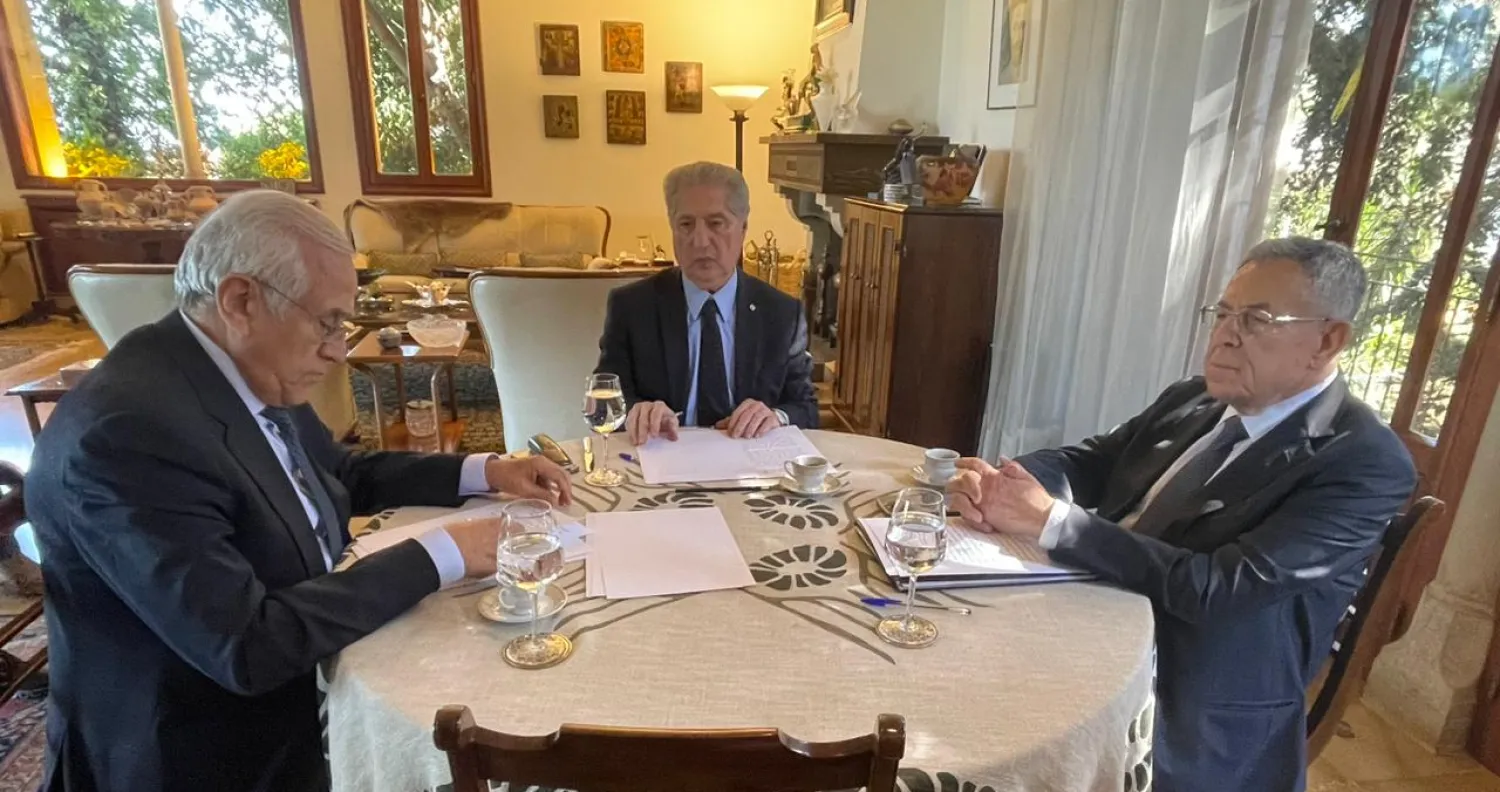Two former Lebanese presidents and a former prime minister have called for an immediate ceasefire and the strict enforcement of UN Resolution 1701 under Lebanon’s authority as Israel continues its attacks on Lebanon.
They also urged the swift election of a new president without any conditions.
Former presidents Amin Gemayel and Michel Sleiman, along with former prime minister Fouad Siniora, met at Gemayel’s residence in Bikfaya to discuss Lebanon’s worsening situation due to the escalating Israeli offensive.
They warned that the ongoing political, economic, and social crises are deepening the country’s struggles.
The leaders praised caretaker Prime Minister Najib Mikati for standing up to Iranian interference and reaffirming Lebanon’s sovereignty.
Five Key Steps
In a joint statement, Gemayel, Sleiman, and Siniora called for an immediate ceasefire and the strict implementation of UN Resolution 1701 under Lebanon’s full control. They urged support for efforts by Lebanese leaders and international partners to achieve this.
They also called for the presidential election process to be freed from any conditions, ensuring the new president earns the trust of Parliament and the Lebanese people.
This, they said, would help restore Lebanon’s government and reaffirm state control across the entire country, free from outside interference.
The leaders also called for the formation of a national rescue government to rebuild the state and revive the economy, including reconstructing damage from the Israeli attacks, with help from Arab and international partners.
They emphasized the need to restore full state authority over all Lebanese territory, in line with international resolutions and the Taif Agreement.
They also called for financial and economic reforms based on transparency, accountability, and good governance.
Siniora’s Comments
Siniora, who led Lebanon’s negotiations for the 2006 ceasefire and Resolution 1701, explained that the resolution requires Lebanon to enforce international decisions, including barring weapons south of the Litani River except for state forces or UNIFIL.
“Though we no longer hold official positions, our duty to Lebanon’s future drives us to push for the immediate implementation of these five steps,” Siniora said.
Lebanon's Former Leaders Call for Ceasefire and Unconditional Presidential Elections

Former leaders (from left) Michel Sleiman, Amin Gemayel, and Fouad Siniora during a meeting in Bikfaya (National News Agency)

Lebanon's Former Leaders Call for Ceasefire and Unconditional Presidential Elections

Former leaders (from left) Michel Sleiman, Amin Gemayel, and Fouad Siniora during a meeting in Bikfaya (National News Agency)
لم تشترك بعد
انشئ حساباً خاصاً بك لتحصل على أخبار مخصصة لك ولتتمتع بخاصية حفظ المقالات وتتلقى نشراتنا البريدية المتنوعة







